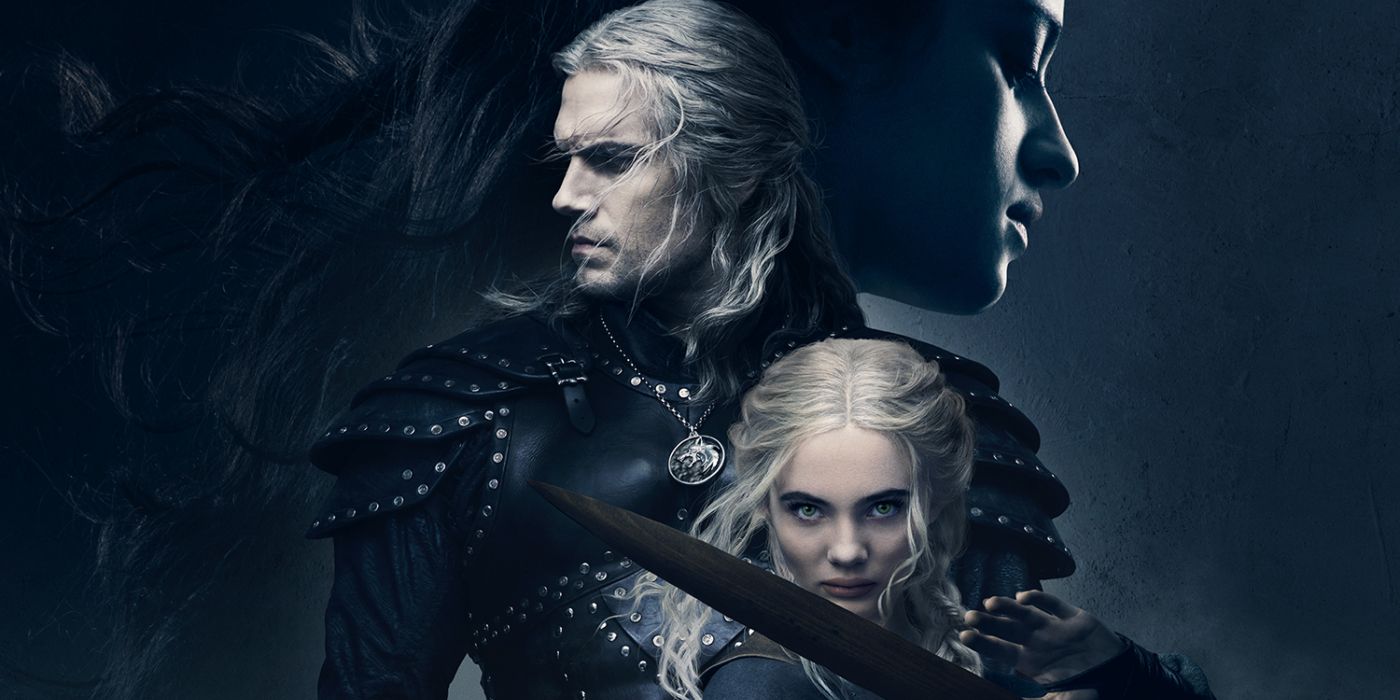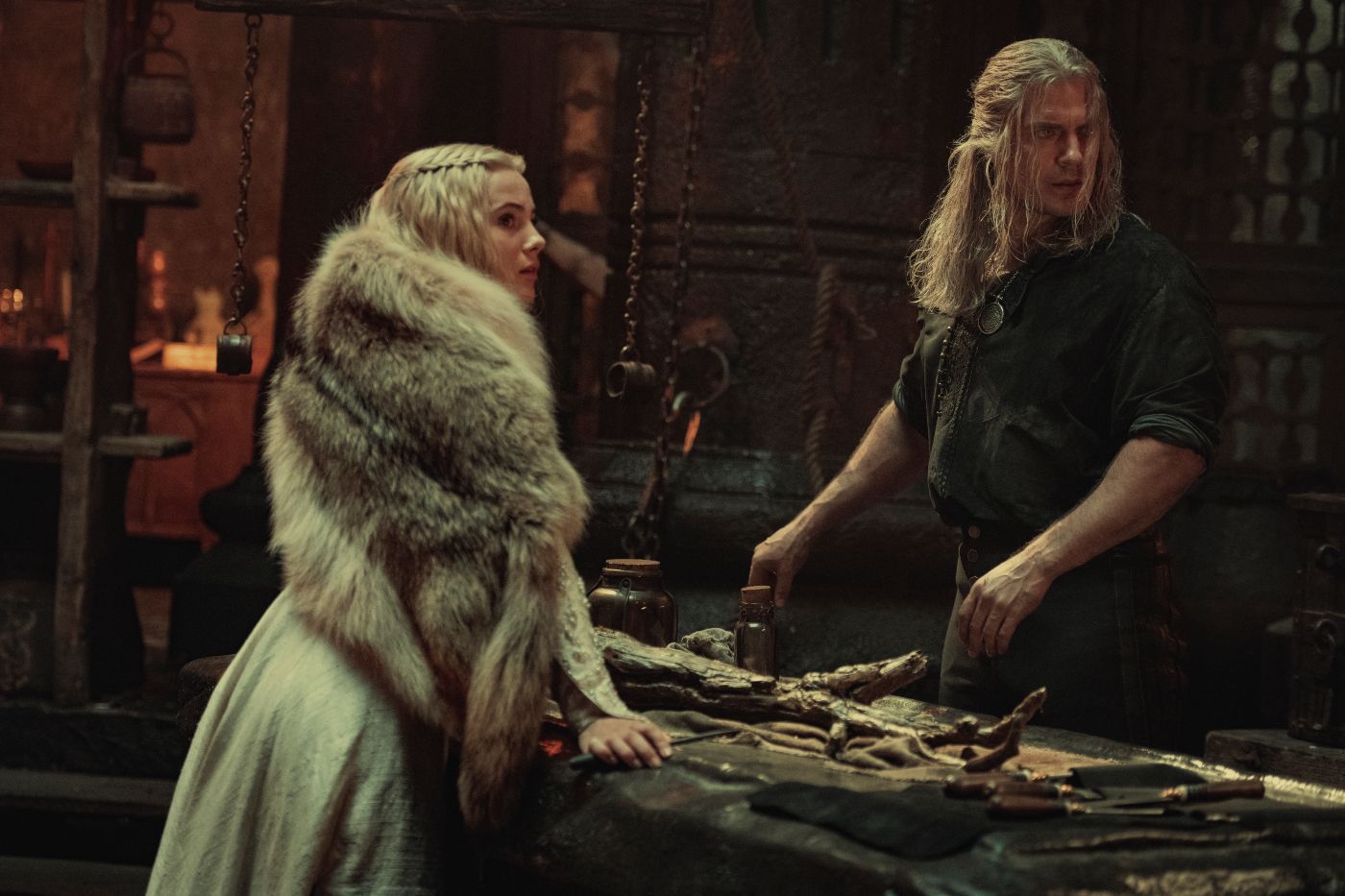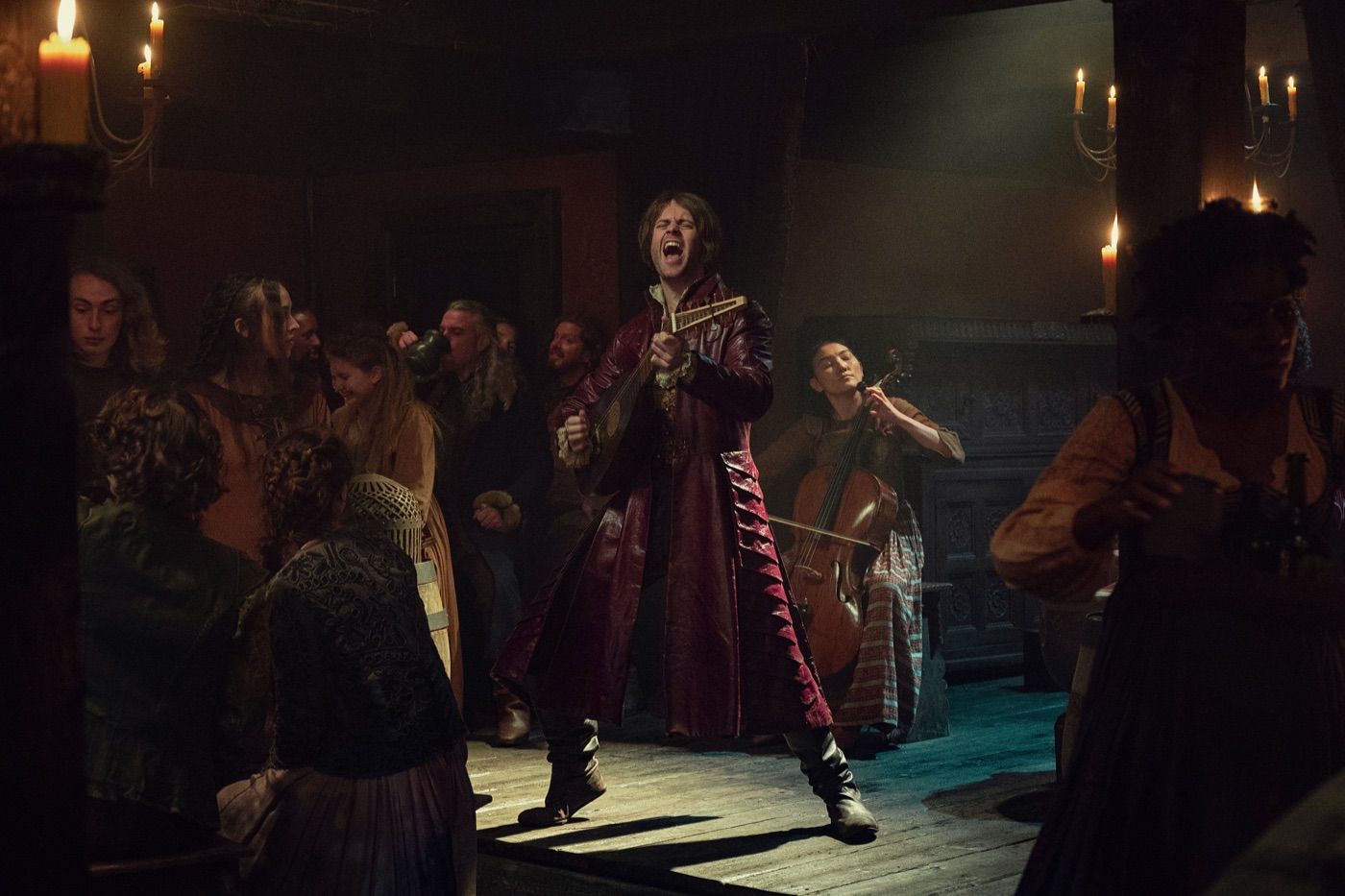Making a successful sophomore season for one of Netflix's most popular original series, let alone one of its biggest fantasy shows, is really a move akin to trying to capture lightning in a bottle the second time around. When Season 1 of The Witcher premiered around this time two years ago, there was a general sense of apprehension surrounding its release. Video game adaptations (even if The Witcher is also adapted from the series of short stories by Andrzej Sapkowski) have an unfortunate reputation for being so-bad-they're-almost-good, comically bad, or this-never-should've-seen-the-light-of-day-bad — and the first images of Henry Cavill in character as Geralt of Rivia didn't inspire much faith either (at least until he finally tried a different silver wig on for size). It was unclear whether the actor, himself a self-professed devotee of the games, would be able to channel that same singular focus into successfully rendering the titular Witcher on-screen — but the first season, while admittedly brimming over with fantasy tropes, was definitely carried by character work. The fact that said characters were divided into three different timelines, a plot point that didn't reveal itself until much of the season was over, didn't necessarily make things any easier to follow. However, Season 2, which comes to Netflix on December 17, seems to not only have learned from the missteps of its predecessor but is even willing to gently poke fun at itself in the process — and its once-taciturn White Wolf who's starting to feel even more three-dimensional.
Season 2 of The Witcher picks up where the first left off after the absolute devastation at the Battle of Sodden Hill, where the powerful sorceress and Geralt's on-again, off-again lover Yennefer of Vengerberg (Anya Chalotra) wielded an impressive display of fire against the invading Nilfgaardian army and seemingly sacrificed herself in the process after channeling so much power. At least, that's what Geralt's told when he arrives on the scene after the battle, now accompanied by his new charge Princess Cirilla (Freya Allan), whose life is officially bound to his care. With Yen believed to be dead, Geralt shoulders his grief as well as his latest responsibility and decides to take Ciri with him to Kaer Morhen, his childhood home where he also first trained to become a witcher.
It's a move from the series that brings us up-close on its most emotional plotline — the burgeoning relationship between Geralt and Ciri, as well as his initial reluctance to be any kind of mentor to her — but it also works to the show's benefit as a whole, because Cavill and Allan are hands-down the most compelling part of this season. Even when The Witcher occasionally chooses to remind us that the Continent of the show still exists beyond the walls of Kaer Morhen — and there continue to be bigger forces at work, many of them with their sights set on Ciri herself — nothing manages to be as interesting as watching the father-daughter dynamic play out between two characters whose paths we spent an entire season (and multiple timelines) waiting to cross.
Cavill's Geralt of Rivia is infinitely more likable this time around for a variety of reasons. The actor has already been on the record as stating that the Witcher gets more chances to talk this season, which is quantifiably true, but Cavill also appears to be more comfortable in the role overall, and it shows — not only as we see Geralt return to Kaer Morhen almost like the prodigal son, where he plays off of his mentor Vesemir (played to tired perfection by Killing Eve's Kim Bodnia) with a familiarity that speaks to years of history, but also in the character's willingness to let himself be mercilessly dunked on by his young Child Surprise. Given that the show can stray into intense territory, both in story and in visuals, it's nice to have moments of levity between Geralt and Ciri or Geralt and Vesemir which serve to remind us that even an epic fantasy series doesn't need to be so grim all of the time.
Unfortunately, other characters like Yennefer haven't fared so well by comparison, at least regarding any kind of pleasantness, plot-wise. It's not necessarily spoiling anything to mention that she has, in fact, survived Sodden Hill, but it turns out that there might be some more serious consequences for her after channeling such an overwhelming display of power, even if said power did ultimately turn the tide in favor of the mages and the rest of the Northern Kingdoms. Hers is a long road this season, as she finds herself first in the company of enemies and then some unlikely allies, but always looking towards a certain ambition, and Chalotra's performance deftly encompasses all of the complexities of Yennefer's character as her own journey brings her closer and closer to her most deeply-rooted objective.
Similarly, we also pick up with Geralt's once-devoted sidekick Jaskier (Joey Batey), sporting longer hair and an unshaven face as he performs a new hit single that might not be as much of an earworm as "Toss a Coin" but succeeds at being what can only be described as an angsty break-up rock ballad penned with a certain witcher in mind. In a brief but memorable scene, one townsperson makes mention of his daughter being a big fan of the bard's music — except for one song in particular. "Took me to the fourth verse to understand there were different timelines," he says, delivering a line that may as well be paired with its own wink at the audience but also represents what feels like the show's updated philosophy as a whole.
Season 1 of The Witcher definitely had something to prove when it first aired — to longtime fans as well as first-time watchers — and really only succeeded at flinging too much narrative spaghetti at the wall to see what would actually stick. By comparison, Season 2 is finally settling into its stride and has an even better sense of what works while discarding more of what didn't — although there are still the occasional unannounced time-jumps forward, or surprise character introductions, that demand attentiveness rather than any distracted background viewing. But the biggest strength for this fantasy show follow-up, and the one that kept me returning for all six episodes given out, is the found family it offers in Geralt and Ciri as they settle into familiarity and trust with one another — with Cavill and Allan effectively playing the kind of duo worth building a long-running franchise around.
Rating: A-
Season 2 of The Witcher premieres December 17 on Netflix.



